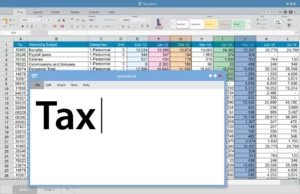Table of Contents
Key Takeaways:
- The UAE’s accounting job market is expanding rapidly with digital transformation and new tax regulations.
- Strong accounting knowledge, UAE financial laws, and software proficiency are essential.
- Globally recognized certifications greatly enhance employability and salary prospects.
- Tailored CV, strategic job searching, and networking increase chances of success.
- Preparing for technical and cultural interview aspects is critical to securing a role.
Introduction: Your Pathway to a Rewarding Accounting Career in the UAE
Diving into the UAE’s vibrant accounting job market can feel both exciting and daunting. The country’s flourishing economy, zero personal income tax, and multicultural work environment attract thousands of finance professionals yearly. If you’re passionate about numbers and eager to build a dynamic career in a global hub, the UAE offers abundant opportunities across industries like real estate, finance, tech startups, and retail. But success demands more than passion — it calls for smart preparation and understanding the nuances of the local job landscape.
Whether you’re a fresh graduate or an experienced accountant looking to relocate, this guide reveals the essential skills, qualifications, and strategies to secure your dream accountant position in the UAE in 2026. From mastering in-demand certifications to navigating visa requirements, here’s how you can stand out and thrive in one of the world’s fastest-growing business centers.
Understanding the UAE Accountant Job Market in 2026
1: Accounting provides information on
The UAE’s accounting sector is booming thanks to rapid economic growth, regulatory changes like corporate taxation rollout, and digital transformations. There is strong demand for skilled accountants who understand international standards (IFRS), UAE financial laws including VAT, and who can leverage modern accounting technology.
Companies increasingly prioritize candidates proficient in cloud-based accounting software (like QuickBooks, SAP, Oracle) and those comfortable with automation and AI tools in finance. Salaries vary by experience level, with junior accountants earning around AED 15,000 monthly and senior ACCA-qualified professionals commanding AED 40,000 or more.
| Accounting Role | Monthly Salary (AED) | Monthly Salary (INR) | Experience Level |
|---|---|---|---|
| Junior Accountant | 10,000 – 15,000 | ₹236,000 – ₹354,000 | Entry-level (0-2 years) |
| Accountant | 15,000 – 25,000 | ₹354,000 – ₹590,000 | Mid-level (2-5 years) |
| Senior Accountant | 25,000 – 35,000 | ₹590,000 – ₹826,000 | Experienced (5-8 years) |
| Accounting Manager | 35,000 – 45,000 | ₹826,000 – ₹1,062,000 | Managerial (8-12 years) |
| Finance Controller | 45,000 – 60,000 | ₹1,062,000 – ₹1,416,000 | Senior Management |
| Chief Financial Officer | 60,000 – 100,000+ | ₹1,416,000 – ₹2,360,000+ | Executive Level |
Unlock Your Accounting Potential – Enroll in the UAE Accounting Course Today
Key Skills Employers Seek
- Solid knowledge of accounting principles, taxation, financial reporting, and auditing
- Expertise in UAE VAT laws, corporate tax, and compliance
- Proficiency in accounting software and ERP systems
- Strong analytical, problem-solving, and communication skills
- Ability to work across multicultural teams and communicate financial insights simply
Essential Qualifications to Boost Your Employability
- Bachelor’s degree in Accounting, Finance, or related fields is a must
- Globally recognized certifications greatly enhance your profile:
- ACCA (Association of Chartered Certified Accountants)
- CPA (Certified Public Accountant)
- CMA (Certified Management Accountant)
- CIMA (Chartered Institute of Management Accountants)
- UAE-specific knowledge certifications such as IFRS courses or UAE Corporate Tax Certificates
- Practical experience through internships or entry-level finance roles improves competitiveness
Tip: Many recruiters give preference to candidates holding current UAE labor market experience or internships, as it reflects familiarity with the local business environment.
Be a certified practical accountant! Get a demo video !!
Placement Oriented PWC Business Accounting Course
PWC Certified Business Accounting Course by Entri App: Master in-demand skills, ace interviews, and secure top-tier jobs.
Join Now!Crafting a UAE-Friendly CV and Online Presence
Your CV should be a concise (1-2 pages) snapshot tailored for the UAE market:
- Highlight certifications, software skills, and UAE-related regulatory knowledge
- Use keywords like “IFRS,” “VAT compliance,” “financial analysis,” “audit” to pass ATS filters
- Clearly state your visa status or sponsorship availability
- Showcase soft skills: teamwork, adaptability, and communication
- Create a professional LinkedIn profile optimized for accounting job searches with endorsements and achievements
Pro Tip: Engage with UAE-based finance groups and recruiters on LinkedIn to boost visibility.
Top Platforms to Find Accountant Jobs in the UAE
- Popular job portals: Bayt, GulfTalent, LinkedIn, Indeed UAE
- Recruitment agencies specializing in finance like Robert Half, Hays, BAC Middle East
- Company websites of major banks, audit firms, and multinational corporations
- Networking events, finance seminars, and online forums often reveal unadvertised openings
Mastering the Interview: What to Expect and How to Prepare
Prepare for a mix of technical and behavioral questions:
- Financial statements and accounting concepts (e.g., working capital, deferred revenue)
- Familiarity with accounting tools and ERP software
- Scenario-based problem solving and data interpretation
- Communication of complex financial information in simple terms
- Cultural fit questions focusing on respect, punctuality, and professionalism in the UAE work culture
Example question: How do you ensure accuracy in financial reports under tight deadlines?
Tip: Practice articulating your strengths and career goals aligned with the company’s vision.
Also read: SAP Consultant Salary in UAE
Placement Oriented PWC Business Accounting Course
PWC Certified Business Accounting Course by Entri App: Master in-demand skills, ace interviews, and secure top-tier jobs.
Join Now!Navigating Visa and Work Permit Processes
To legally work in the UAE, you’ll require a valid employment visa, typically sponsored by your employer. The hiring process involves:
- Receiving a formal job offer
- Completing medical fitness tests and background checks
- Submitting attested educational and professional documents
- Understanding different visa types, including freelance licenses if relevant
Stay informed of updates in UAE labor regulations to ensure compliance throughout your employment.
Also read: How much do ACCA professionals earn in UAE?
Key Accounting Interview Questions in the UAE
- Tell us about yourself and your accounting background.
- What accounting software are you proficient in?
- How do you handle discrepancies in financial statements?
- Explain VAT and its impact on businesses in the UAE.
- Describe a challenging financial problem you solved.
- How do you stay updated with changing accounting standards?
Entri’s Accounting Courses to Accelerate Your Career
Take your accounting career to the next level with Entri’s specialized courses designed to meet UAE market demands:
- Practical Accounting Course: Build hands-on skills with real-world accounting scenarios.
- PwC Edge – Strategic Accounting & Finance Programme: Learn from industry experts and strengthen your strategic financial acumen.
- SAP MM Online Course, SAP FICO Training Course, and SAP SD Training Online: Gain expertise in essential ERP modules highly valued by large corporations.
- ACCA Course: Pursue a globally recognized accounting qualification.
- Enrolled Agent Course in Kerala: Specialized tax expertise for aspiring tax professionals.
- UAE Accounting Course: Focus on UAE-specific financial standards and regulatory frameworks.
Conclusion
Success in landing an accountant job in the UAE hinges on acquiring the right skills, qualifications, and market knowledge. Investing time in certifications, staying updated with regulations like VAT and Corporate Tax, and mastering accounting technologies will make you a standout candidate. Entri’s comprehensive courses bridge this gap by offering practical, UAE-focused training that prepares you for the competitive job market. Start your journey today and unlock exciting accounting career opportunities in the UAE with confidence. Enroll now and elevate your professional profile to meet the demands of tomorrow’s finance world.
Accounting courses we offer |
Accounting courses in Different Cities |
| Business Accounting & Finance Certification | |
| Tally Course | |
| Taxation Course | |
| UAE Accounting Course | |
| GST Course |
Placement Oriented PWC Business Accounting Course
PWC Certified Business Accounting Course by Entri App: Master in-demand skills, ace interviews, and secure top-tier jobs.
Join Now!Frequently Asked Questions
What is the average salary for accountants in the UAE?
Salaries range from AED 15,000 for entry-level roles to AED 40,000+ for experienced certified professionals.
Is knowledge of Arabic required to work as an accountant in the UAE?
Arabic is beneficial but not mandatory; English is widely used in business.
Can I apply for jobs in the UAE without professional certifications?
A degree is essential, but certifications like ACCA or CMA significantly enhance job prospects.
How long does it take to get a work visa for the UAE?
Typically 2-4 weeks after receiving a job offer, including medical and background checks.
What accounting software should I learn for the UAE job market?
Popular software includes QuickBooks, SAP, Oracle Financials, and cloud-based tools specific to the region.















